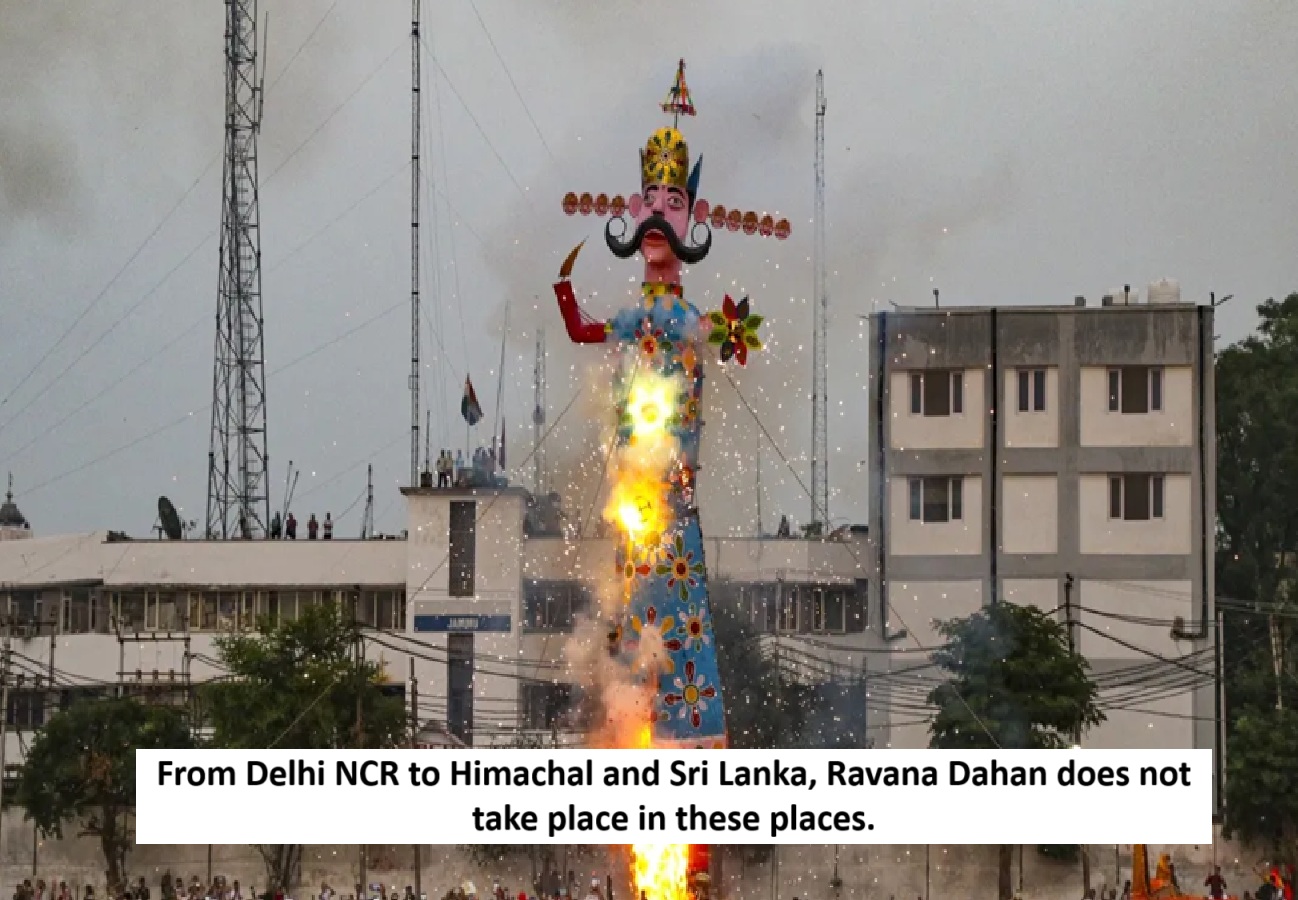
News Topical, Digital Desk : Ravana's effigies are burned across the country on Dussehra. However, there are many places where Ravana's effigies are not burned. In some places, Ravana is worshipped, while in others, mourning is observed. A village in Delhi NCR is also included in this list. Here, we highlight some of these places where Ravana's effigies are not burned on Dussehra.
Baijnath: The people of Baijnath in the Kangra district of Himachal Pradesh believe that Ravana performed penance here and appeased Lord Shiva. For this reason, the people here revere Ravana and do not burn the effigy of Ravana on Dussehra. They consider the burning of Ravana to be inauspicious.
Amravati: The tribal community living in the Gadchauri area of Amravati district in Maharashtra considers Ravana to be their ancestor. They consider him a great scholar and a devotee of Shiva. Therefore, they do not celebrate Dussehra or burn his effigy. For them, this day is a day of respect and remembrance.
Bisrakh: Bisrakh village in Uttar Pradesh is considered to be Ravana's birthplace. People here revere Ravana and avoid the practice of burning him.
Vidisha: Some people in Madhya Pradesh worship Ravana, considering him a devotee of Shiva, and do not burn him.
Mandsaur: In Madhya Pradesh, Ravana is revered as a son-in-law because Mandodari is believed to have been born in this region.
Sri Lanka: Ravana is considered the king of Sri Lanka, and there is no tradition of burning Ravana. In some communities in Sri Lanka, Ravana is revered as a scholar and a devotee of Shiva. Although Dussehra is celebrated here as the victory of good over evil, there is no tradition of burning effigies.
South Indian region: In some parts of Tamil Nadu and Karnataka, especially among communities that consider Ravana as a scholar or a Dravidian hero, Ravana's effigy is not burnt. Dussehra is celebrated there in other ways. Here, Dussehra is celebrated as Vijayadashami or as a weapon worship or a cultural festival.
Jain community: Ravana is seen as an important figure in Jainism. In some Jain traditions, Ravana is considered to be the next Tirthankara to be born. Therefore, Jain community does not perform Ravana Dahan.
Shaivite community: Communities that consider Ravana to be an ardent devotee of Shiva, such as Lingayats or other Shiva worshipping communities in some parts, may oppose Ravana Dahan.
Read More: 'They go to heaven but don't return home...' Congress MP posts emotional post on Khamenei's death
--Advertisement--

 Share
Share



